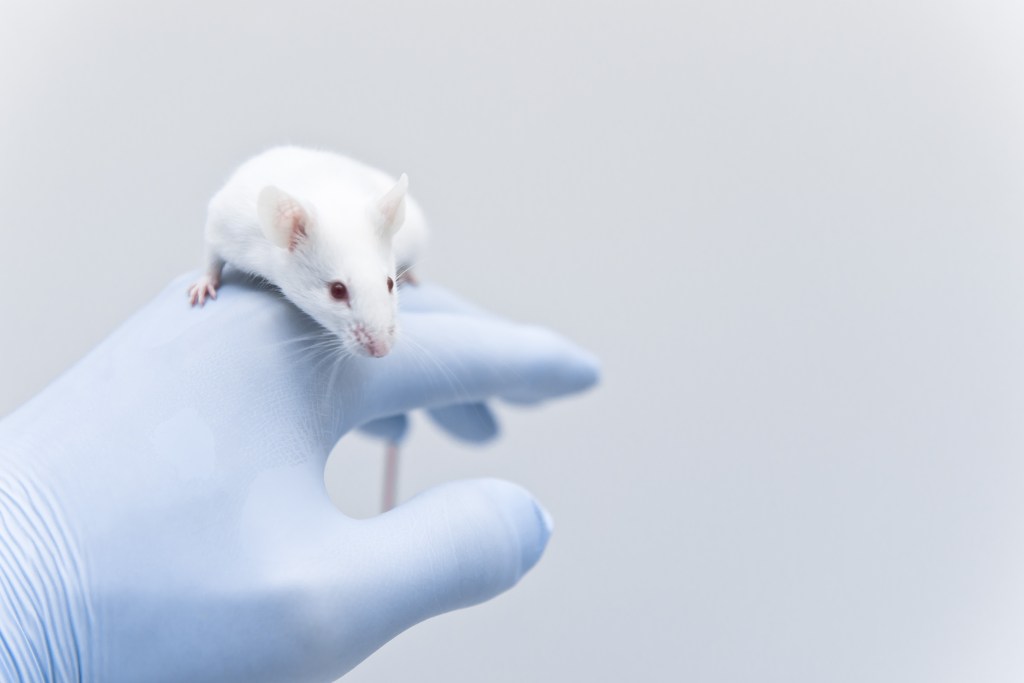Two major studies published today in Science Translational Medicine demonstrate the effectiveness of viruses in curing two types of aggressive, treatment-resistant brain and breast cancers in humans and mice, respectively.
Two separate research teams in the UK and Canada examined how oncolytic viruses—which specifically infect and kill cancer cells—could interact with other immunotherapies to create a therapeutic cocktail that is far more effective at completely eradicating cancers than any of its individual therapies alone.
Videos by VICE
While one of the studies was only done in mice, it follows on the heels of FDA approval to use a modified herpes virus to treat melanoma in humans, and heralds a future in which viruses will help harness the body’s own immune system to fight some of the most intractable cancers.
In the first study, led by Marie-Claude Bourgeois-Daigneault, a postdoctoral researcher at the Ottawa Hospital Research Institute, researchers focused on triple negative breast cancer, the most aggressive and treatment-resistant type. In particular, they wanted to see if combining two types of cancer therapies was effective at stopping the spread of cancer—known as metastasis—after the surgical removal of a tumor, which can promote the spread of the cancer.
Bourgeois-Daigneault and her colleague John Bell, a professor at the University of Ottawa, dosed mice with the Maraba virus, which was first isolated from Brazilian sandflies. This virus has previously been shown to be particularly effective at targeting cancer cells without killing its host and was given to the mice before they underwent a tumor-removal surgery. After the surgery, the mice were dosed with checkpoint inhibitors, which allow the body’s immune system to attack remaining cancer cells.
This new multi-step approach proved to be highly effective and totally eradicated the triple negative breast cancer in 60 and 90 percent of the mice. When just the Maraba virus was used, it cured the triple-negative breast cancer only 20 to 30 percent of the time. The checkpoint inhibitors didn’t cure any of the cancer on their own. The results of this study will be incorporated into ongoing clinical trials investigating the potential of the Maraba virus at Ottawa Hospital.
“When you infect a cancer cell with a virus, it raises a big red flag, which helps the immune system recognize and attack the cancer,” Bell said in a statement. “But in some kinds of cancer this still isn’t enough. We found that when you add a checkpoint inhibitor after the virus, this releases all the alarms and the immune system sends in the full army against the cancer.”

In a second study from the University of Leeds, researchers injected a virus directly into the bloodstream of nine human brain cancer patients waiting to undergo surgery. It was uncertain whether the virus would be able to cross the blood-brain barrier to target the cancer cells, but the results were encouraging. In samples obtained after the viral therapy and subsequent treatment, the researchers found that the virus was able to reach the tumor in all nine patients, even if it was deep within the brain.
Moreover, the presence of the virus in the brain also kicked the body’s immune system into overdrive and drove more of the cancer-hunting T-cells to the site of the tumor.
Read More: Viruses Are the Antibiotic of the Future
“This is the first time it has been shown that a therapeutic virus is able to pass through the brain-blood barrier, and that opens up the possibility this type of immunotherapy could be used to treat more people with aggressive brain cancers,” Adel Samson, an oncologist at the Leeds Institute of Cancer and Pathology, said in a statement.
The results of the Leeds study are already being applied in a clinical trial which will combine the viral therapy with more standard treatments such as chemotherapy.
Although viruses have been investigated as potential cancer cure for decades, these two studies mark a major step in taking these experimental therapies from the lab to the clinic and may very well pave the road to a treatment for some of the most aggressive cancers in the world.
Get six of our favorite Motherboard stories every day by signing up for our newsletter.

